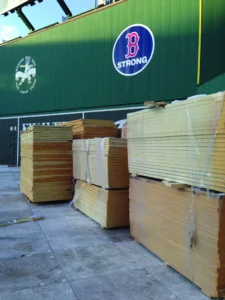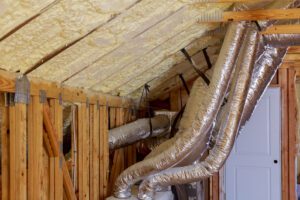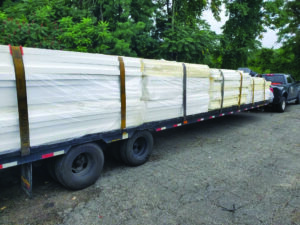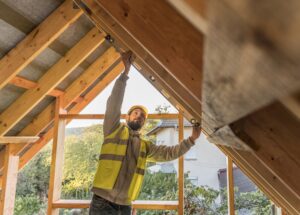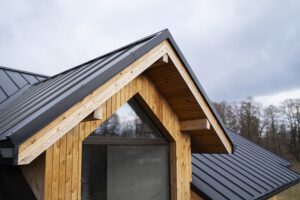Reclaimed vs Recycled Insulation Materials
In the realm of sustainable building, the choice of insulation materials plays a pivotal role. Not only does insulation impact a building’s energy efficiency, but it also has significant environmental…
Using Recycled EPS Foam Panels to Save Energy and Reduce Carbon Footprint
In the picturesque Hudson River Valley, a remarkable transformation is underway, led by the visionary team at River Architects. Their latest project, the renovation of an 1840’s blacksmith shop in…
Ventilation in the Well-Insulated Home
In the quest for energy-efficient homes, insulation stands as a formidable champion, slashing heating and cooling bills while keeping our living spaces comfortable. But there’s a lesser-known challenge: the need…
Rigid Insulation: What Is It and How to Use It?
Rigid insulation, a type of thermal insulation, is primarily designed to resist heat flow and provide a protective barrier between the external environment and a building’s interior. Comprised of panels…
Cost-Benefit Analyses of Insulation Improvements
Improving home insulation is cost-effective, saving homeowners an average of 15% on heating and cooling or 11% on total energy costs by sealing air leaks and insulating attics, floors over…
Retrofitting Homes to Passive House Standards: Resources
The Passive House movement began in the late 1980’s in Europe as a set of voluntary standards to massively reduce the energy requirements of residential and commercial buildings. The initial…
Navigating Energy Credits & Rebates in MA
Massachusetts has many programs promoting residential energy efficiency, and the passage of the IRA act in 2022 has expanded the funding and the complexity of those offerings. It can be…
Is Continuous Insulation a Continuous Air Barrier?
Continuous insulation (CI) in the context of home building is a layer of insulation that is installed without any thermal breaks. This means that the insulation is continuous around the…
Passive House vs Net Zero Standards: How Do They Differ?
Both Passive House and Net Zero designs require a high level of insulation and air sealing to reduce energy consumption. They also both require careful attention to detail during construction…

